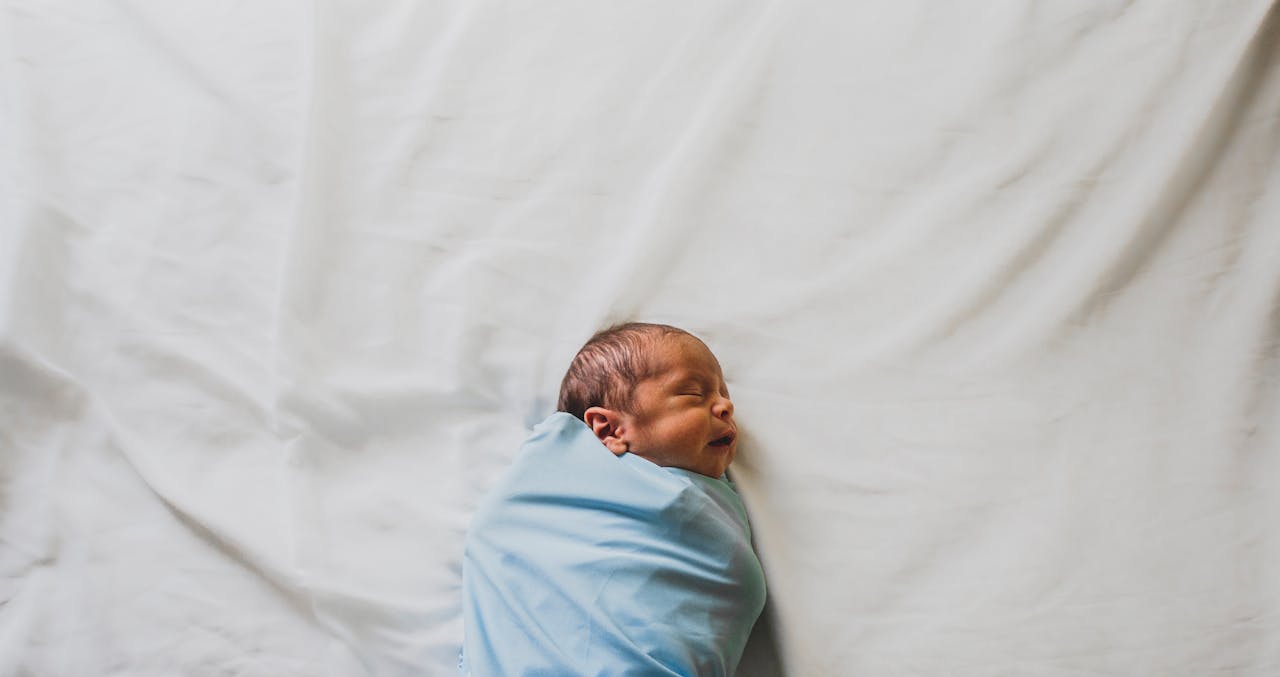
In some babies, the hair is barely visible. (Pexels Photo)
By Rakime Elmir, Western Sydney University and Alka Kothari, The University of Queensland, The Conversation
Babies are born with fine, downy, short, and slightly pigmented body hair called lanugo. The term comes from the Latin word “lana,” meaning wool.
In some babies, the hair is barely visible. In others, there can be quite a lot of hair, especially around the face, shoulders, back and head.
Either way, lanugo is nothing to worry about and will disappear on its own a few weeks after birth.
Why are some babies born so hairy?
Lanugo appears on the fetus around the third month of pregnancy.

Photo by Anupkumar Patel/Pexels
As the fetus develops in utero, this hair grows thicker by the seventh month. It will end up covering most of the baby’s body, except for the areas that do not have hair follicles.
While not all babies are born with lanugo, all of us had it in the womb.
Most babies shed it in the womb at around 33–36 weeks of pregnancy, where it mixes with amniotic fluid and is swallowed by the baby.
The lanugo then passes through their system and becomes part of their first poop, which is called meconium.
Babies born before they are due, however, tend to have a lot more body hair as the lanugo has not had the opportunity to shed.
After the vernix (the white goo that is on a baby’s skin when they are born) is removed, small amounts of lanugo may stay on the baby for a few weeks.
Girl and boy babies are born with roughly the same amount of hair, which is replaced by the thicker hair that remains throughout life.
After the third month of life, the lanugo on the head will be replaced by permanent hair. This hair lengthens and falls out between 12 and 24 months of life. After this shedding, most of the baby’s hair will be permanent.
Parents do not need to worry if a baby is born with lots of body hair; generally, it goes away in a few weeks. Lanugo can be present in 30% of babies for the first few weeks of life.
Hypertrichosis lanuginosa, however, is a rare genetic disorder that causes excessive growth of lanugo or lanugo-like hair.
An infant can be born with this genetic condition, or it may develop later in life. It can be triggered by a health condition, eating disorder, or show up as a side effect of some medications.
What is the purpose of lanugo – and is it really linked to heartburn?
Lanugo protects the newborn’s skin, regulates their body temperature and binds to vernix.
Vernix protects the baby’s skin, prevents water loss, plays a vital role in controlling temperature, and contributes to natural immunity.
Lanugo will show up differently in different babies. Depending on the length of your pregnancy it can be absent or abundant.
Your family’s genetics will also play a role, making the hair lighter or darker.
Babies with lighter skin often have light or colourless lanugo, while those with darker complexions tend to have darker hair and, therefore, darker and more noticeable lanugo.
There may be some truth behind the belief that heartburn during pregnancy is linked to a higher chance of the baby being born with a lot of hair.
One US study published in 2006 found that “women who reported moderate or severe heartburn gave birth to babies with average or above average amounts of hair”.
The severity of symptoms was not related to the baby’s sex or mother’s age or weight. The authors suggested it was possible pregnancy hormones involved in making the lower esophageal sphincter relax were also involved in fetal hair growth.
A Thai study published in 2012 also concluded most women who reported heartburn gave birth to babies with average or above average amounts of hair.
Lanugo is an important part of your baby’s development. While some babies may be born with this soft fine hair, it is a normal feature of baby’s growth and maturation and usually not a cause for concern.![]()
Rakime Elmir, Associate Professor in Nursing and Midwifery, Western Sydney University and Alka Kothari, Associate Professor, Faculty of Medicine, The University of Queensland
This article is republished from The Conversation under a Creative Commons license. Read the original article.





















